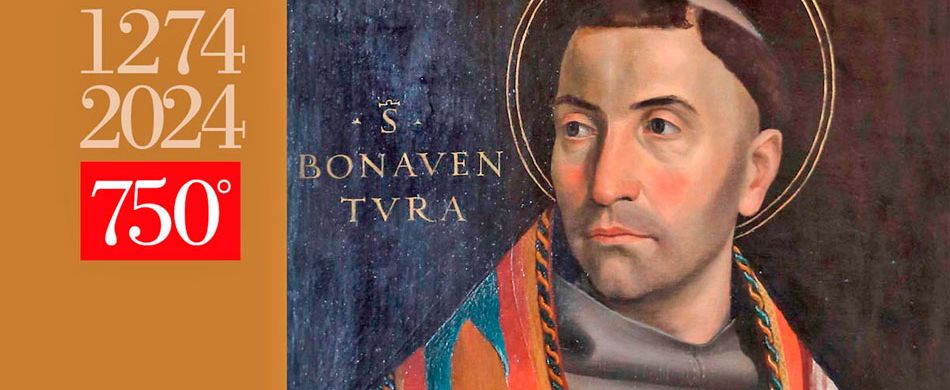DEAR friend, in the annals of Christian history, some figures shine with their own light, and their legacy endures through the centuries, inspiring generations with their profound wisdom and unwavering faith. Among these luminaries is St. Bonaventure, whose extraordinary life and teachings continue to resonate deeply, especially this year when we celebrate the solemn 750th anniversary of his death.
However, we would never have heard of this extraordinary person if St. Francis of Assisi had not intervened to save his life. According to tradition, Bonaventure, who was then called Giovanni Fidanza, fell seriously ill as a child. His mother, learning that Francis was staying for a few days in a friary near their town, Bagnoregio, ran to ask for his help. The Poverello visited the Fidanza family and prayed over the sick child, invoking God’s healing power. Thanks to his prayers, the child was immediately cured, and the saint, before leaving the house, made the sign of the cross on the child’s forehead, pronouncing the words, “Bona Ventura,” which mean “Good fortune.”
This event had such a profound impact on the boy’s life that, at the age of 22, he decided to change his name from Giovanni to Bonaventure, and to enter the Franciscan Order. As a friar, Bonaventure dedicated himself to a life of prayer, study, and service to others. Before long, however, his intellect and spiritual insight were recognized within the Franciscan Order, and he was sent to study in Paris, where he became acquainted with the works of other influential theologians of his time, such as St. Thomas Aquinas.
Central to Bonaventure’s mystical theology is the concept of the soul’s journey to God, in which the soul ascends through contemplation of creation, reflection on itself and, finally, through direct experience of God’s presence. For Bonaventure, true knowledge of God does not come from intellectual discourse alone, but from a profound encounter with the Divine, a union of the soul with its Creator that surpasses all understanding.
For us devotees of St. Anthony, the most famous story involving Bonaventure concerns the discovery of the Saint’s incorrupt tongue. According to tradition, when St. Anthony died in 1231, his body decomposed over time, but his tongue remained incorrupt. Indeed, in 1263, Bonaventure witnessed this phenomenon when he came to Padua on the occasion of the opening of Anthony’s tomb, when his mortal remains were transferred from the small church of Santa Maria Mater Domini to the new Basilica. Seeing that Antony’s tongue was perfectly preserved, St. Bonaventure exclaimed, “O blessed tongue, which has always blessed God and caused others to bless him, now it appears evident how great were your merits before God!”
This story has become a significant part of devotion to Saint Anthony, and his incorruptible tongue is still displayed for veneration in the Basilica of Saint Anthony here in Padua, Italy.
As we commemorate the 750th anniversary of St. Bonaventure’s passing, we are reminded of the enduring relevance of his message in an ever-changing world. In an age marked by technological advancement and materialism, Bonaventure’s call to cultivate the inner life, to seek the divine in the midst of the mundane, rings truer than ever. His life and teachings stand as a beacon of light, guiding us through the darkness of doubt and despair, leading us ever closer to the source of all truth and beauty.
Therefore, dear friend, as we celebrate the legacy of St. Bonaventure, we are invited to renew our commitment to the pursuit of wisdom and holiness. Let us not forget that, although Bonaventure passed away 750 years ago, his spirit lives on in the hearts of all those who seek truth, goodness and beauty in the world, and therefore it can live in ours too; we just have to want it.




